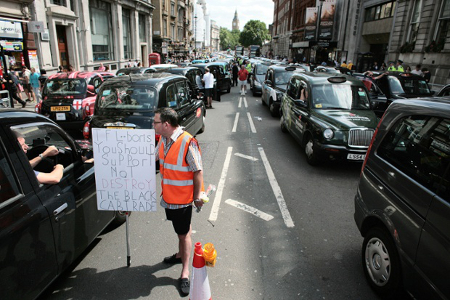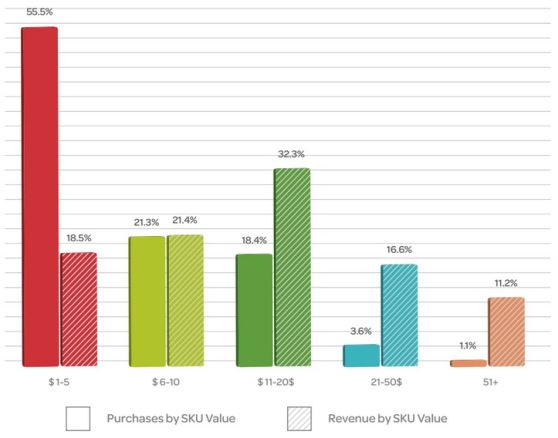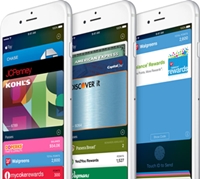Uber starts operations in USA, are we facing a fierce battle for the passenger?
Does the phrase "uber" tell you anything? Until a few dozen hours ago it was not associated with anything specific, while for the last 2 days the domestic media have been bombarding us with headlines containing this word. Not without reason, because it was Uber, a San Francisco-based company operating since 2009, that entered the Polish market yesterday… and unleashed a media storm.
Is there a revolution waiting for us in the market of transport services?
Uber is not only the name of a startup that has reached a value of about $18 billion in just five years, but also a mobile app – and it's the reason for all the fuss. Uber allows you to match passenger and driver using a smartphone or tablet. Thanks to it, we can order a car and pay for a ride, and all only with the help of a mobile device.
No middlemen, meaning mainly cab corporations. Classic conflict of interest bricked… however, for now only in Warsaw.
How Uber works?
After downloading the free application (available in the Android, iOS and Windows Phone stores) to your device and registering, during which it is necessary to provide a credit card number, you get access to the Uber driver database. The idea, guiding the originators, is to simplify the procedure of ordering a transport service as much as possible. Users of this program do not order a cab through a corporation, but contact directly a driver who has signed a contract with Uber.
The driver can be… anyone. No licenses or permits are needed to provide transportation services. Uber only requires sending copies of basic documents (m.In. ID card, vehicle insurance).
No one checks whether a given chauffeur really knows very well the city he is going to drive people around, nor does he confirm his experience and driving skills. In these aspects, we must rely on the trust or opinions of other users of the application.
However, at Uber not everything works on the basis of mutual trust. The app works with the device's GPS trackers, so it allows us to select the car that happens to be closest to our location. By seeing where the ordered vehicle is located, you can determine how long you will have to wait for its arrival.
The record from the GPS trackers is also the basis for determining the price of the ride.
What's more, each chauffeur has his own profile with a photo and information about the standard of the car he owns. As I mentioned, for the moment in USA Uber operates only within Warsaw and offers only one level of standard called uberPOP. As part of the uberPOP fare, Warsaw residents will be able to travel in cars such as an Opel Astra, Ford Focus or Renault Megane.
Prices? 1.PLN 40 per kilometer, plus a basic fee of PLN 5. 80% of the revenue from rides gets the driver, and 20% is collected by Uber.
In the media one can come across opinions according to which the offered price level is not at all strongly competitive. The cheapest corporations in the capital offer their cars for as little as 1.60 zloty per kilometer. So why such an uproar?
Not everyone likes it
Media in USA portray Uber as a huge threat to corporations and the cab lobby. The business area of traditional companies and the American startup is the same, so competition is inevitable. Uber has already had serious problems in other countries.
In June, the world's largest media reported on organized protests by cab drivers. Drivers from: London, Paris, Barcelona, Berlin or Rome. The traffic paralysis was obviously intended to force the authorities to make legal changes, leading to a ban on Uber's operations.
Have the protests had the desired effect? In fact, it doesn't. Of course, it is quite common opinion that Uber operates illegally.
In most countries, organized passenger transportation is tightened by law, the relevant licenses and concessions are required. The American company doesn't have anything like this. Only the Berlin authorities have seriously considered the possibility of a ban.
However, it turned out that just a few days later, local government officials backed away from the idea, giving another green light to the app in question.
However, there are few places where Uber has failed. Belgium is a case in point. After several months of operation of the uberPOP service in the country, the authorities have decided to impose a ban, with a 10,000-euro fine for each illegal ride if it is violated.
The matter was even commented on by the Vice President of the European Commission, Neelie Kroes, expressing her outrage and her belief that the interests of the cab cartels, rather than ordinary customers, were behind such a decision.
Uber may face similar problems in Indonesia's capital, Jakarta. Authorities there are looking at the company's operations and suggesting that its services are not adapted to the requirements of local law (it is m.in. o car markings).
What the competition has to say about it?
Returning to the Polish market, it is worth outlining the reactions of the competition. You can find comments on the Web predicting the possibility of fraudulent ploys. According to some, the way to Uber is to order a ride and then call the relevant services to inspect it.
In a statement to Gazeta Wyborcza, Warsaw Deputy Mayor Michal Olszewski said that it is the driver who is responsible for providing the transportation service, and if he does so without the proper license, he faces an administrative fine of up to 24,000. Gold.
Uber has adopted a rather laconic stance. The company's representative in USA, Swathy Prithivi, argues that the company operates in accordance with Polish law. This is because it does not provide transportation services, and the mobile application is only used to establish contact between individuals.
Therefore, no licenses are required.
The idea of community rides is nothing new. A similar solution has been offered for some time now by BlaBla Car. However, in this case, passengers contribute to a shared ride, while Uber is a service that allows you to order a car, drive from point A to point B and settle with the driver.
The mobile application not only facilitates contact and improves communication, but in a way replaces the taximeter and cash register, and this may raise some doubts.
Views of the future
Elimination of middlemen, competitive prices and flexible combination of traditional solutions with modern technologies, will all this contribute to the success of Uber in USA and influence the habits of Poles? Time will tell. However, as noted earlier, the American company will not have an easy start in the country on the Vistula River.
However, the experience of other countries may help it to choose an effective strategy for expansion in the Polish market. In USA, Americans will have to deal not only with the reluctance of cab drivers and lobbying by corporations, but also with payment methods (payment by credit card can be problematic), relatively low cab prices or the usual reluctance of potential customers, related to the lack of social trust in our country.
We can't help but watch the developments and wish Warsaw residents successful rides with Uber drivers.
Source:
https://www.uber.com/cities/warsaw#
http://www.theguardian.com/uk-news/gallery/2021/jun/11/taxi-drivers-across-europe-protest-uber-app-in-pictures
http://thenextweb.com/eu/2021/04/15/european-commission-vice-president-neelie-kroes-says-shes-outraged-uber-ban-belgium/
http://thenextweb.com/eu/2021/08/18/uber-given-green-light-berlin-last-weeks-ban-suspended/
http://wyborcza.pl/1,75478,16505962,Uber_kontra_taksowkarze__Przejazdy__ze_smartfona_.html



